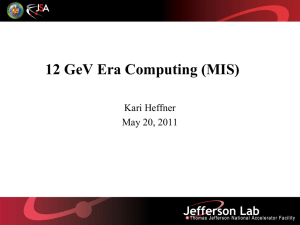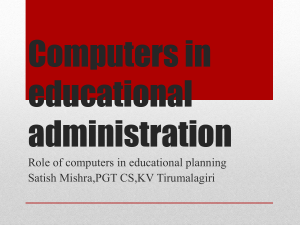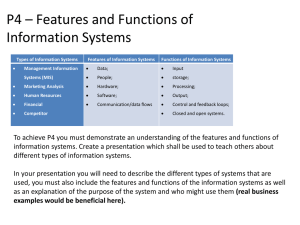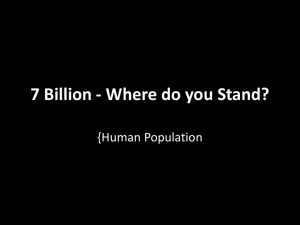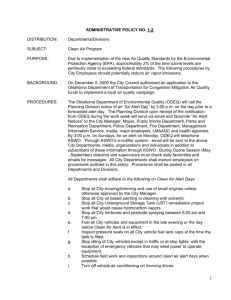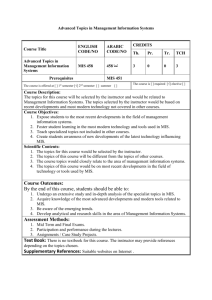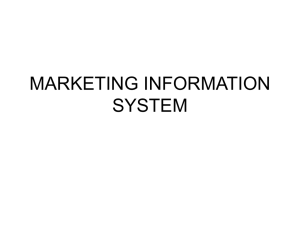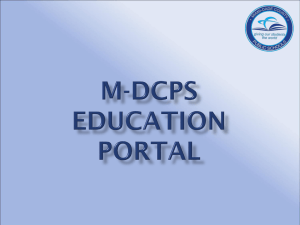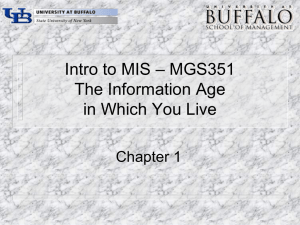The importance of using Information Systems as vehicles for
advertisement
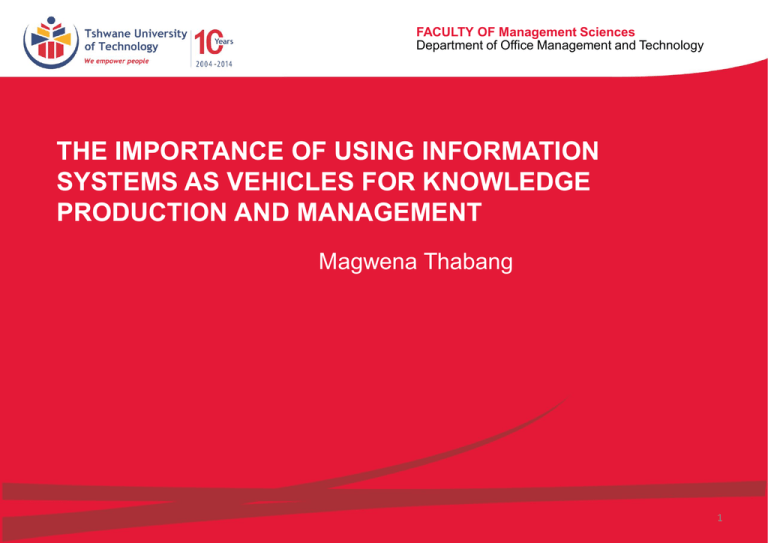
FACULTY OF Management Sciences Department of Office Management and Technology THE IMPORTANCE OF USING INFORMATION SYSTEMS AS VEHICLES FOR KNOWLEDGE PRODUCTION AND MANAGEMENT Magwena Thabang 1 FACULTY OF Management Sciences Department of Office Management and Technology INTRODUCTION The paper contents that the use of information systems such as Management Information Systems (MIS) and Student Tracking System (STS), Decision support system, knowledge management systems, in higher institutions can be used as vehicles for Knowledge Production and Management in Student Affairs and Services. 2 FACULTY OF Management Sciences Department of Office Management and Technology DEFINITIONS •Information system: group of hardware, software, data, procedures and people that interact to produce knowledge. •Tacit knowledge: is knowledge that include experience and cannot be easily accessed by others for their own use. •Explicit knowledge: is what is being documented that can be transferred to others to use. For example manual for operating a machine. 3 FACULTY OF Management Sciences Department of Office Management and Technology TYPES OF INFORMATION SYSTEMS FOR KNOWLEDGE PRODUCTION AND MANAGEMENT •Knowledge management systems •Management Information systems •Decision Support systems •Student Tracking System 4 FACULTY OF Management Sciences Department of Office Management and Technology KNOWLEDGE MANAGEMENT SYSTEMS •Systems designed to facilitate the storage and sharing of knowledge. •Alavi and Leidner (1999) define KMS as the systems that are concerned with activities that involves the creation, collection, organizing and disseminating an organization knowledge. •Knowledge is distributed to other members in the organization and used as new knowledge to them. 5 FACULTY OF Management Sciences Department of Office Management and Technology MANAGEMENT INFORMATION SYSTEMS: •Information systems that assist in providing periodic reports, that includes summaries of events that took place and comparison of information supplied. •Kronke (2013), the use of information systems to achieve organizational strategy, can create knowledge through the creation and comparison of information as it changes from month to month •The reports that are created by MIS will also reflect critical areas that need attention and these could be communicated amongst 6 co-workers. FACULTY OF Management Sciences Department of Office Management and Technology MANAGEMENT INFORMATION SYSTEMS: MIS also provides the following knowledge skills: 1. Abstract reasoning 2. System thinking 3. Collaboration 4. Ability to experiment 5. The ability to study the changing trend of activities also assist in managing knowledge so that it becomes available. 7 FACULTY OF Management Sciences Department of Office Management and Technology DECISION SUPPORT SYSTEMS •Bhatt and Zaveri (2002) point that for new knowledge to exit the organization must continue learning the changing environment. •Decision support systems play a crucial role in the production and management of knowledge since they promote collaboration for the purpose of organizational learning. •The sharing of knowledge regarding the kind of effective decisions that needed to be made further result in a decision making model that is followed throughout the organization 8 FACULTY OF Management Sciences Department of Office Management and Technology DECISION SUPPORT SYSTEMS Huber (1991) pointed out the key requirements for learning new knowledge as follows: 1. Information acquisition 2. Information Distribution 3. Information interpretation 4. Organizational Memory. 9 FACULTY OF Management Sciences Department of Office Management and Technology STUDENT TRACKING SYSTEM •The system automatically create an alert of any student that needs intervention and this alert is based on the academic progress of students when writing class tests during the course of the year. •This alert will be sent by the system before examinations can be written. •Such information enables practitioners to have knowledge of challenges that persist and that knowledge can be shared to other practitioners. 10 FACULTY OF Management Sciences Department of Office Management and Technology CONCLUSION •The paper highlighted how information systems can be used to produce knowledge and manage that knowledge in the student affairs and services, providing information systems as perfect vehicles for such. •Bhatt and Zaveri (2002) posits that sharing of leant knowledge becomes new knowledge to other co-workers, therefore promoting collaboration within the organization using information systems. 11 FACULTY OF Management Sciences Department of Office Management and Technology THANK YOU 12
